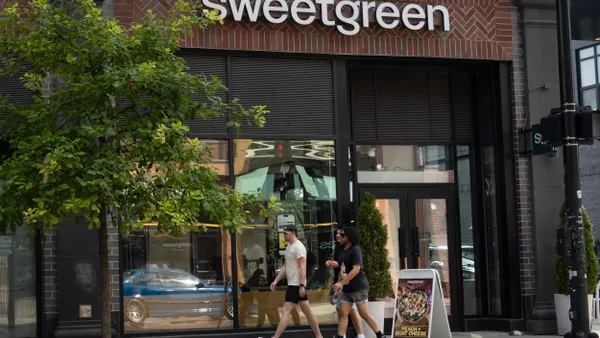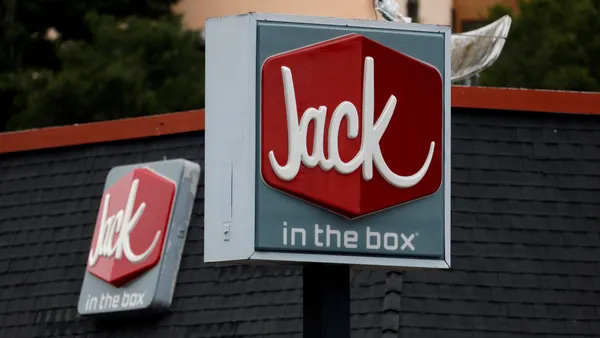Dive Brief:
- Starbucks founder and interim CEO Howard Schultz will remain at the helm of the chain until Q1 2023 to ensure "continuity of leadership" through the 2022 holiday season, the company announced Monday.
- The coffee chain hopes to name a permanent successor to the CEO role this fall. Schultz is not a candidate for the permanent role, he told The Wall Street Journal.
- Starbucks is only considering external talent for the role to find "a different kind of leader" to manage changing worker and consumer behavior, Schultz told the Journal.
Dive Insight:
This CEO search follows a string of Starbucks executive changes, including the replacement of its general counsel in April. The company also hired Frank Britt as chief strategy officer and McDonald's alum Deb Hall Lefevre as chief technology officer in April.
“For the future of the company, we need a domain of experience and expertise in a number of disciplines that we don’t have now,” Schultz told The Journal.
A stable of new company leaders may be necessary to ensure Starbucks can navigate a litany of market pressures — most notably the Starbucks Workers United union drive that is sweeping stores nationwide. As of last week, more than 100 Starbucks cafes had voted to unionize and at least 150 more are scheduled to hold votes in the near future, according to the National Labor Relations Board.
Last week, the union announced a $1 million strike fund to pay for Starbucks workers' time lost and other benefits while they are on strike. Union workers have already orchestrated strikes across at least 27 stores, including locations that haven't held a union vote yet, according to a Starbucks Workers United organizer.
Starbucks' approach to union activity so far has drawn criticism from shareholders and consumers alike. In March, a cohort of 73 Starbucks shareholders representing over $3.4 trillion in assets wrote a letter to corporate asking the chain to take a neutral stance in dealing with the union to safeguard Starbucks' reputation.
Schultz has been the face of corporate's response to union organizing, talking with many workers on the ground at pro-union stores. This too has sparked backlash, as some of Schultz's conversations with pro-union employees and comments on the union — including a speech about companies being hurt by the "threat of unionization" — have gone viral on social media.
The company is also grappling with segment-wide obstacles, including skyrocketing inflation and rising food costs that are impacting diner spending habits.
Schultz will remain on Starbucks' board of directors after the permanent CEO takes office in the spring "for a seamless transition" of power amid the company's growing pain points. The company has a target deadline of the company's March shareholder meeting, Schultz told The Journal.












